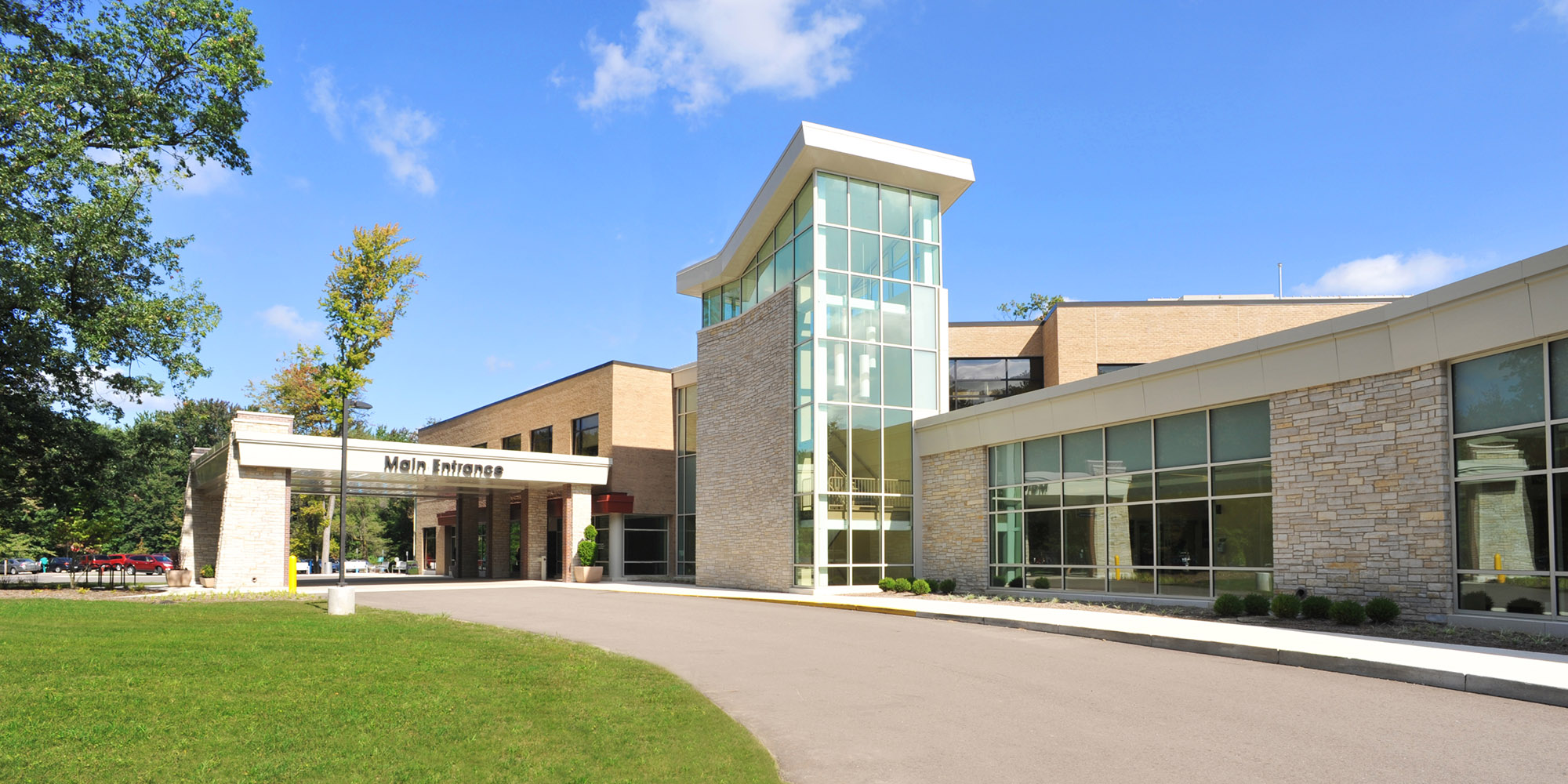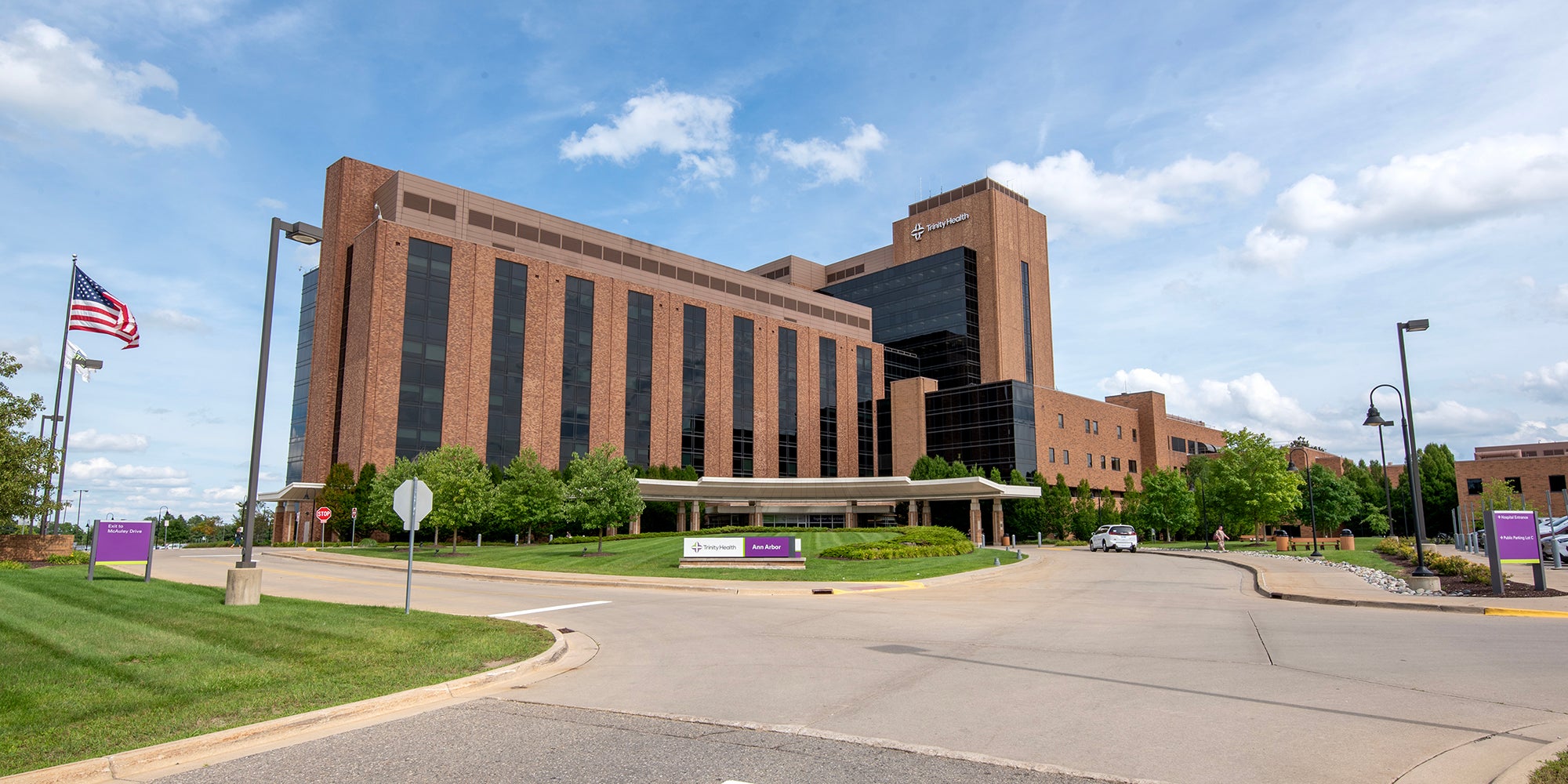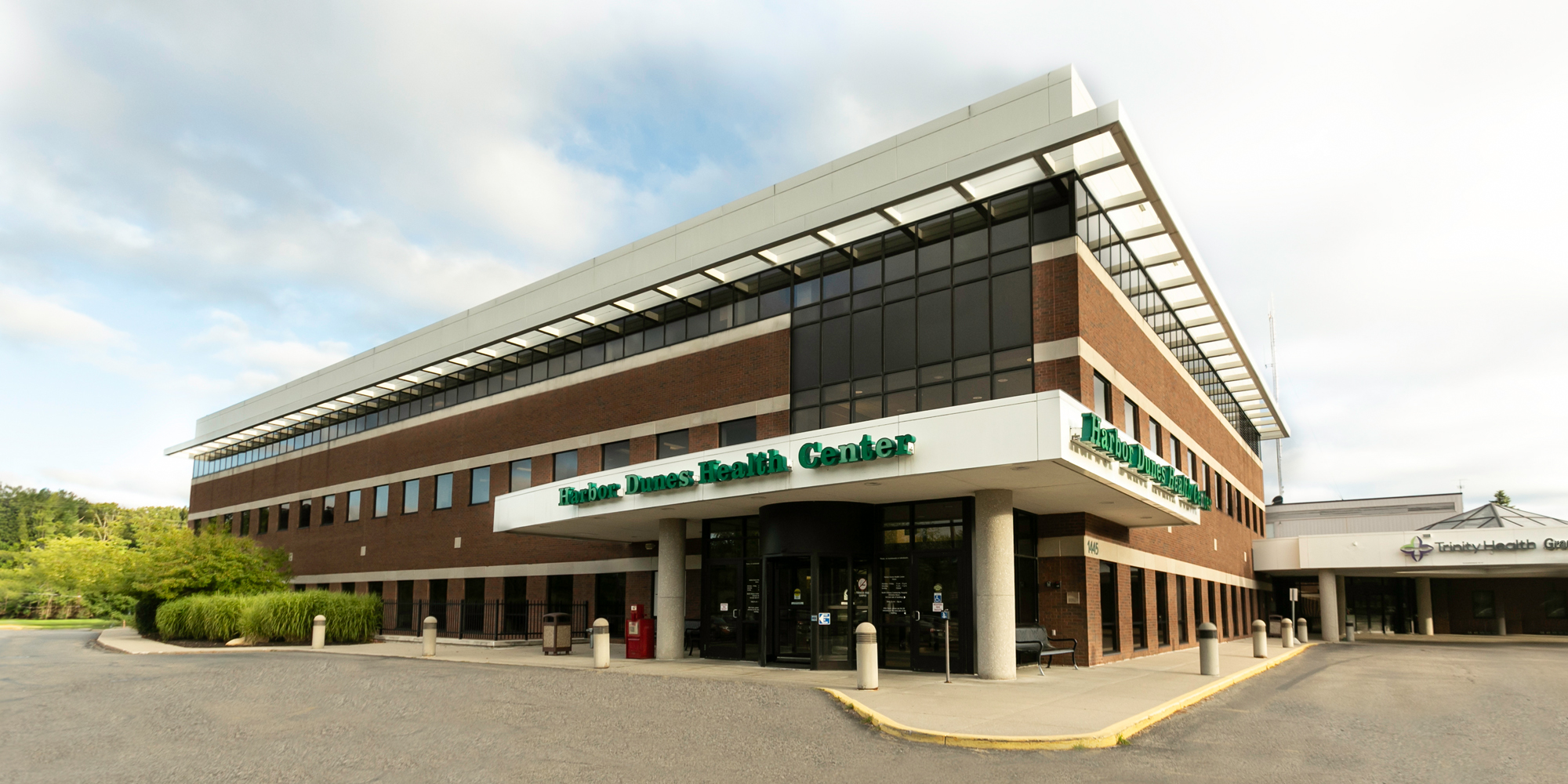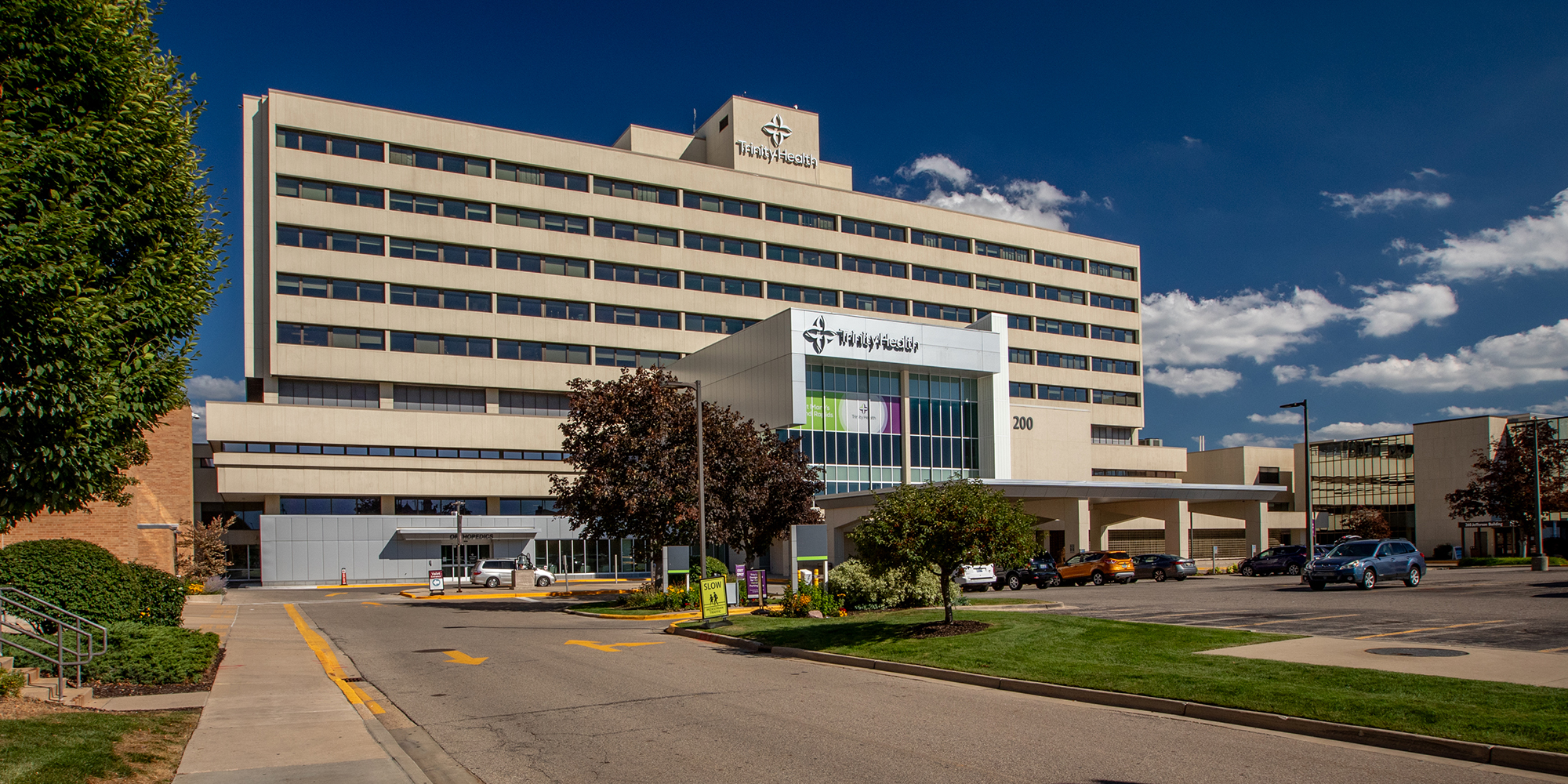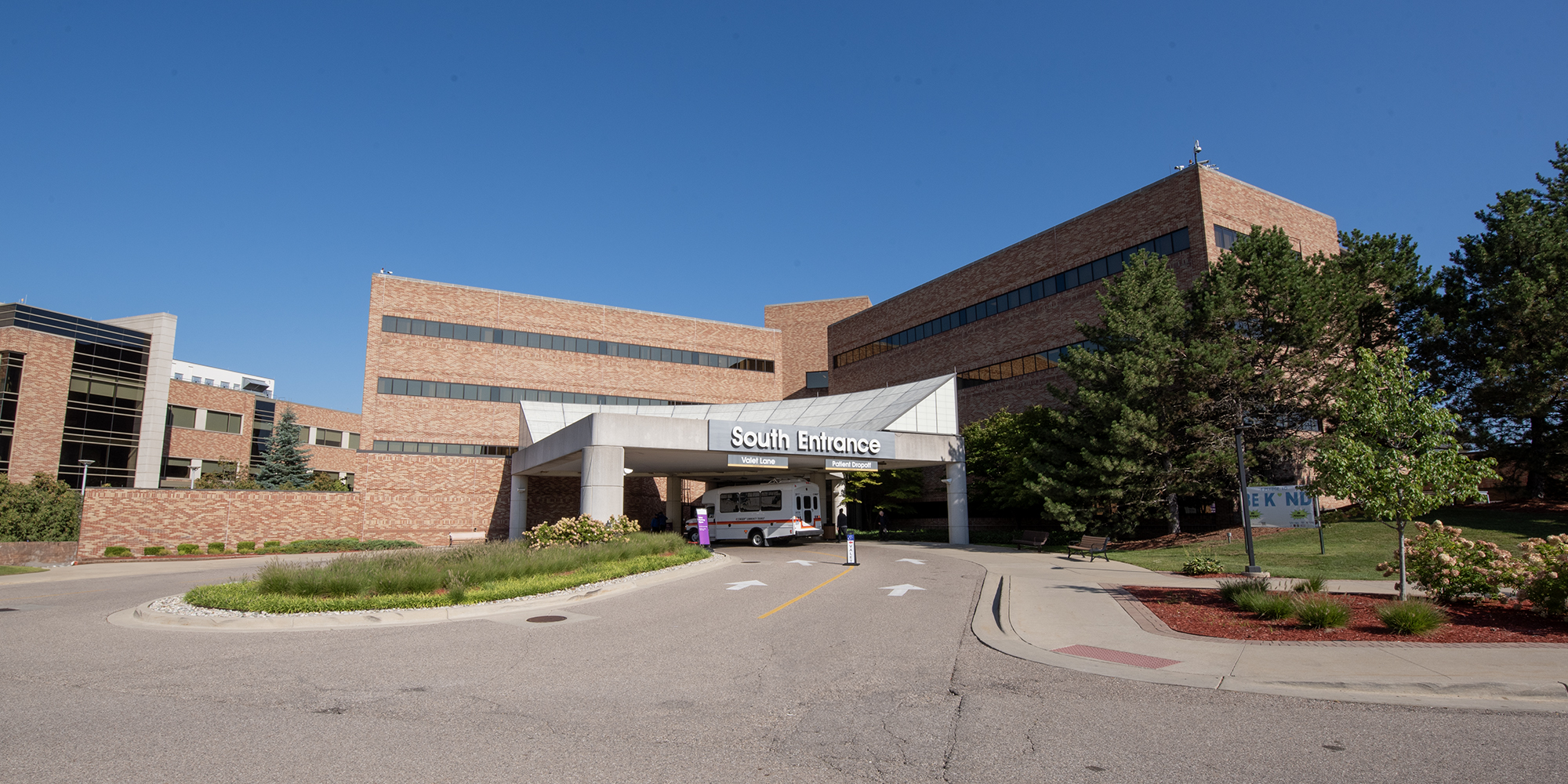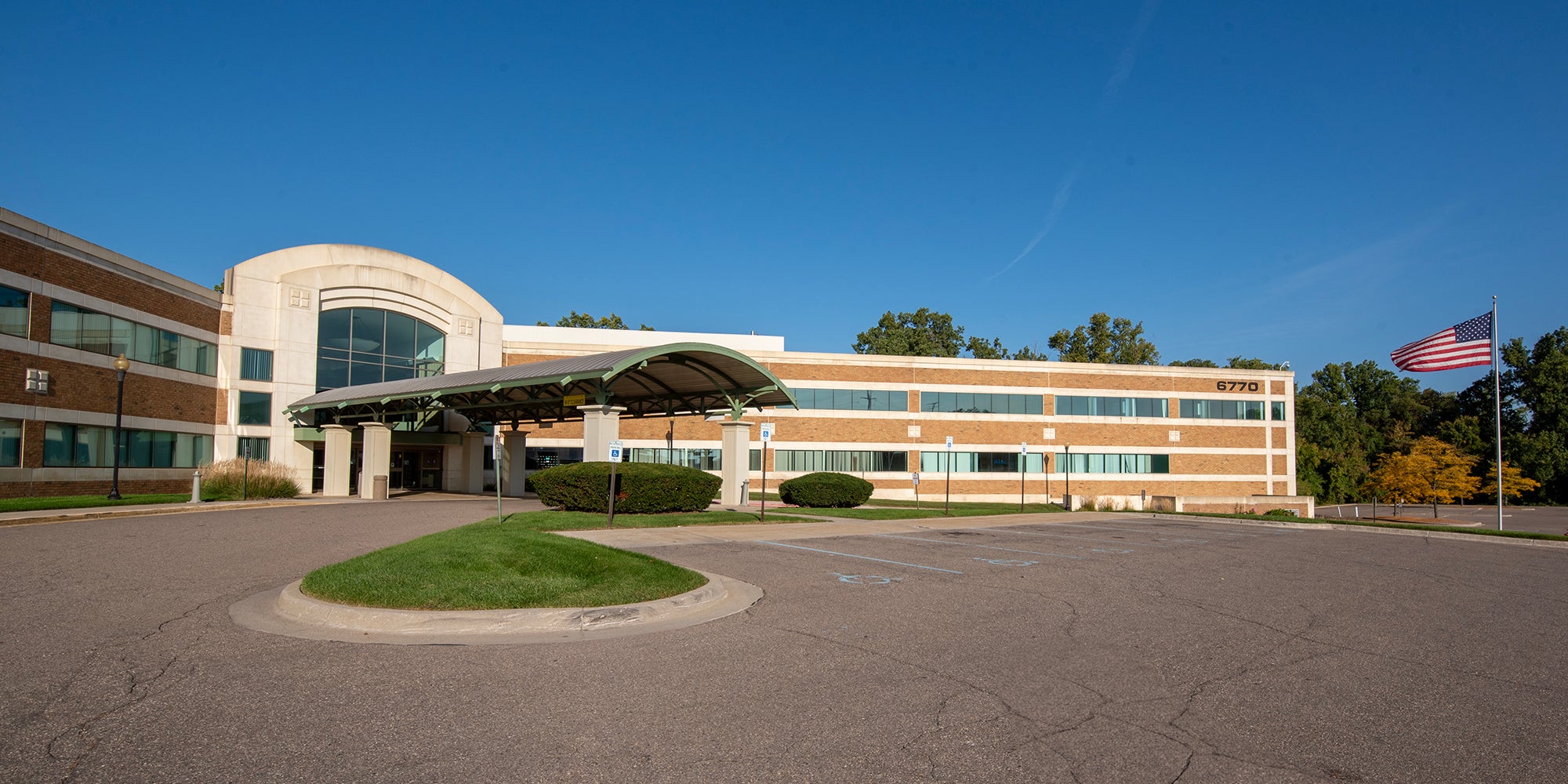Hernias
At Trinity Health Michigan, we put your health and well-being first. Our expert team provides compassionate care and support to you and your family for many types of hernia surgeries, ensuring you receive the highest quality treatment and a smooth path to recovery.
Innovative Surgical Treatments
Our hospitals are equipped with advanced medical technology to ensure the most effective surgical treatments for many types of hernias. From diagnostic tools to minimally invasive robotic surgery and laparoscopic surgery, we leverage the latest innovations to provide our patients with the highest standard of care including an award winning SRC accredited location, resulting in quicker recovery times and reduced postoperative discomfort.

Don't settle for hernia pain.
Hernias are a common medical condition and are treatable. Don’t settle for nausea, pain or discomfort, let our medical experts help.
Types of Hernias We Treat
Hernias are a common medical condition that occurs when an organ or tissue protrudes through a weak spot in the surrounding muscle or connective tissue. This can lead to discomfort, pain and other complications if left untreated. Hernias can manifest in different forms, each originating from a distinct part of the body.

- Inguinal hernia – Inguinal hernias are the most common type of hernia and occur when part of the intestine bulges through a weak spot in the abdominal wall, creating a small lump near the groin. It can happen during activities like heavy lifting.
- Femoral hernia – Femoral hernias happen when tissue, usually part of the intestine, stick through a weak spot near the upper thigh and groin.
- Incisional hernia – Incisional hernias form at the site of a prior abdominal surgery incision, where tissue or organs push through a weakened scar creating a visible bulge.
- Umbilical hernia – Most common in infants, an umbilical hernia develops through a weakened spot near the belly button.
- Hiatal hernia – Hiatal hernias happen when the upper part of the stomach protrudes into the chest through a weakened diaphragm opening, causing acid reflux and discomfort. Lifestyle changes and medications manage symptoms, but severe cases may require surgery.
- Epigastric hernia – An epigastric hernia occurs when fat or part of the intestine pushes through a weak area in the abdominal muscles.
- Lateral hernia – A hernia that develops when tissue or organs push through a weak spot in the spigelian fascia (abdominal wall muscles).
- Ventral hernia – Any type of bulge of intestine or other tissue through a weakened abdominal wall. Umbilical and incisional hernias are specific types of ventral hernias.






